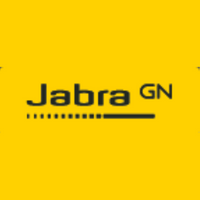
Jabra
View Brand PublisherDecoding the future of work
Is work from office coming back? Or will we stick with a hybrid model? Here’s what experts had to say at a roundtable discussion on the future of work and the need for a holistic approach. The session was hosted by Jabra, in association with YourStory.
A laptop, stable WiFi, and a quality headset define the new workspace.
Peter Jayaseelan, VP and MD, South Asia, and Head, Public Sector (APAC), Jabra, hit the nail on the head at the start of a roundtable discussion on the future of work and the need for a holistic approach.
The session, hosted by Jabra, in association with YourStory, explored different points of views with respect to how the definition of office has evolved. It also deliberated on the ways in which employees are adapting to the shift in workplace culture as companies leverage new-age tech to swiftly implement the hybrid working model.
No one-size-fits-all formula
Aruna RB, Head of People, Nurture.Farm, shared that many employees did not fully comprehend how the industry functions and the fact that “understanding the mission” cannot be done remotely.
“It took the better part of two years to convince people to come back to work,” she said.
It’s clear that setting expectations while allowing employees to work remotely is crucial.
Changa Reddy B, VP -Retail, Tredence, said he hired talent from Rameswaram, a town on Pamban Island in Tamil Nadu, and Kanyakumari, a coastal town at the southernmost tip of the country. There is no one-size-fits-all formula when it comes to hybrid working, he said.
Venkatesh Sundar, Co-founder and CMO, Indusface, revealed that the company was hybrid even before COVID and is continuing with the same mindset post-pandemic. He added that individual choice matters the most, but “we make sure clear boundaries are in place”.
Jayaseelan echoed his sentiments stating that almost 80% of meetings now happen online. “Ultimately employees should get to decide what works best for them. I personally go to the office because I love to see people; there is a lot of learning that happens,” he said.
Expansion beyond metro cities
Large tech companies including TCS, Wipro, Infosys are opening up centres in Tier-2 cities. With this approach, companies aim to access more talent and give its employees greater flexibility in terms of where they want to work from.
Aruna insisted that there is a need for a Zoho-like approach where they have taken offices to smaller cities. “We need to stop depending on metros to drive growth,” she said.
Chirag Boonlia, Group CTO, Embassy Group, which has been in Bangalore for over 25 years, agrees that there is a need for the ecosystem to think like Zoho.
But it’s clear companies do not yet have a definitive solution on what can be the ideal workplace approach.
Chetan, VP, Digital Marketing at Simpl, said the company has been experimenting with different models. “At the time of hiring we ensure our employees are based out of Bangalore so everyone can come together for important meetings.”
However, Yogesh Bhat, Co-founder and SVP, Masai School believes it is all right to expand geographical horizons to hire for a specific skill set.
For a lot of companies, the kind of work mode depends on the job role.
“I might not find a suitable candidate in Bangalore for the skills that I need to hire for. However, we have made it compulsory for our core leadership to be in the office,” he said.
Kapil Joshi, Deputy CEO, Quess IT Staffing, said work from office can be eliminated completely for some roles.
Other factors in play
As far as tech companies are concerned, hybrid was a buzzword even before the COVID.
“We have been working like this for so long that I don’t understand this term ‘coming back’,” said Sukanya P - Senior Vice President, Tech Area Lead, Group Digital & Technology, SwissRe.
Technology experiences can define employee experiences in a hybrid setting.
“I use a Jabra headset at the office and Jabra speakers at home. Using the right tech tools makes all the difference,” she added.
Bofin Babu, Co-Founder, Head of CloudSEK XVigil, said it is important for people to come together to discuss ideas. “We had to have our employees in Bangalore and we have made it a practice to come to the office two days a week.”
The recent layoffs across big tech firms have led to job insecurities among employees.
“Do you allow work from home?’ is not an employee question anymore,” said Rama Subramani Ganesan, CTO, Portea
Brining in the human resource perspective, Sophronia Kasab, Director HR, Resha Mandi, stressed on the fact that HR has a very little role in deciding whether to work from home or office. “Our policies are designed such that a manager decides how much flexibility is enough.”
Experts cited productivity and security as some of the other major concerns that need to be addressed while implementing the hybrid working model.
Monish Kaul, CTPO, Zivame said that work from office cannot be enforced. However, Hybrid setting has its own set of challenges. “We personally experienced employees moonlighting which is again a debatable topic.”
“One cannot innovate and create something phenomenal sitting at home. We realised productivity did take a hit while working from home,” said Mukesh Solanki, Head of Infra & Cyber Security, KreditBee.
“I am concerned about security as more and more people are working on unsecured networks,” he added.







